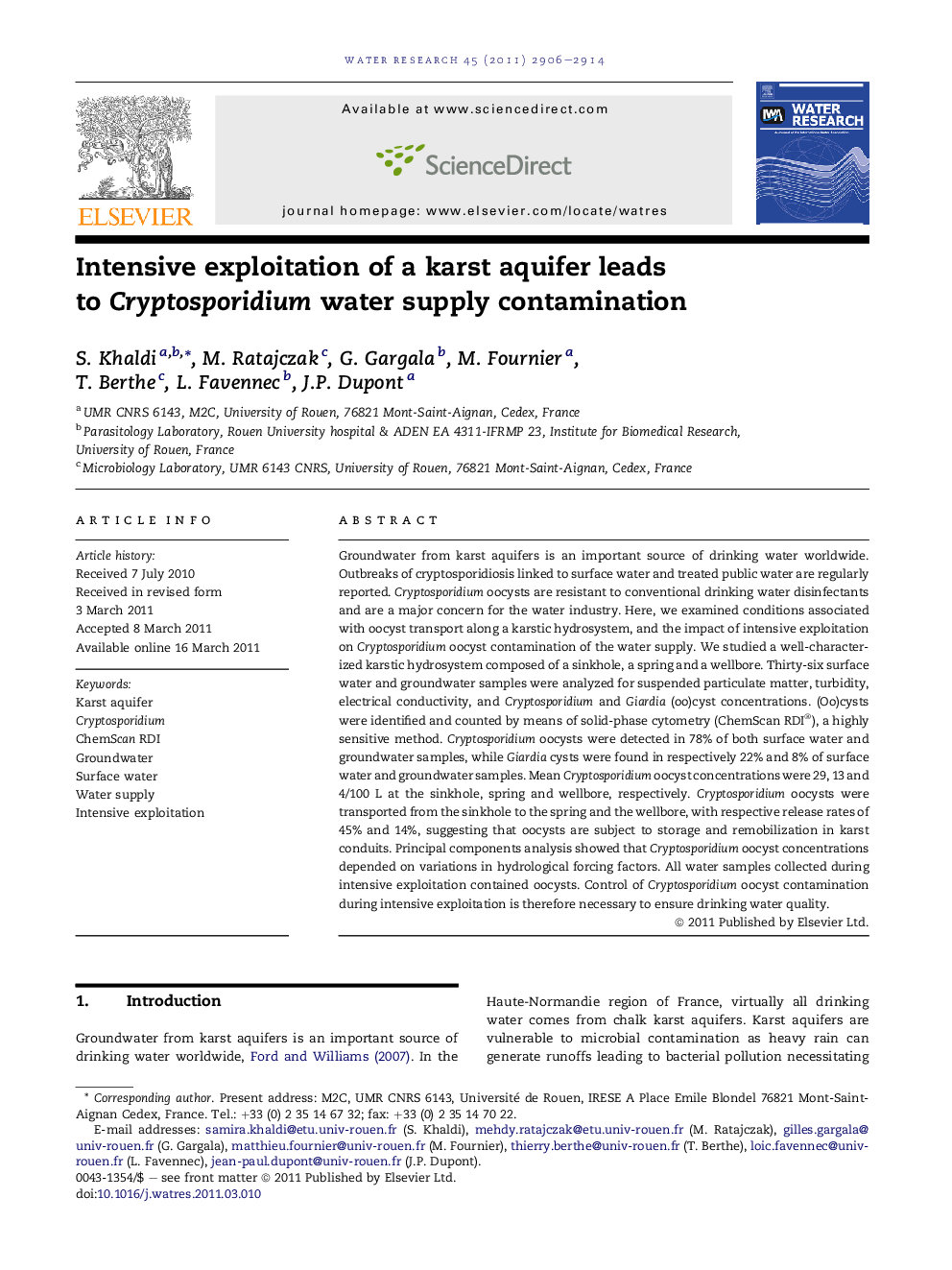| کد مقاله | کد نشریه | سال انتشار | مقاله انگلیسی | نسخه تمام متن |
|---|---|---|---|---|
| 4483443 | 1316888 | 2011 | 9 صفحه PDF | دانلود رایگان |

Groundwater from karst aquifers is an important source of drinking water worldwide. Outbreaks of cryptosporidiosis linked to surface water and treated public water are regularly reported. Cryptosporidium oocysts are resistant to conventional drinking water disinfectants and are a major concern for the water industry. Here, we examined conditions associated with oocyst transport along a karstic hydrosystem, and the impact of intensive exploitation on Cryptosporidium oocyst contamination of the water supply. We studied a well-characterized karstic hydrosystem composed of a sinkhole, a spring and a wellbore. Thirty-six surface water and groundwater samples were analyzed for suspended particulate matter, turbidity, electrical conductivity, and Cryptosporidium and Giardia (oo)cyst concentrations. (Oo)cysts were identified and counted by means of solid-phase cytometry (ChemScan RDI®), a highly sensitive method. Cryptosporidium oocysts were detected in 78% of both surface water and groundwater samples, while Giardia cysts were found in respectively 22% and 8% of surface water and groundwater samples. Mean Cryptosporidium oocyst concentrations were 29, 13 and 4/100 L at the sinkhole, spring and wellbore, respectively. Cryptosporidium oocysts were transported from the sinkhole to the spring and the wellbore, with respective release rates of 45% and 14%, suggesting that oocysts are subject to storage and remobilization in karst conduits. Principal components analysis showed that Cryptosporidium oocyst concentrations depended on variations in hydrological forcing factors. All water samples collected during intensive exploitation contained oocysts. Control of Cryptosporidium oocyst contamination during intensive exploitation is therefore necessary to ensure drinking water quality.
Journal: Water Research - Volume 45, Issue 9, April 2011, Pages 2906–2914